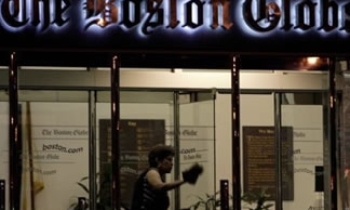Just about every week, the phone rings with an earnest, young journalism student at the other end asking what he or she needs to do to become a reporter. Some have already given it a great deal of thought. Most have not.
For a while now, I've toyed with the notion of one day writing a book, a kind of road map for would-be reporters on some of the obstacles ahead. I'm not sure what I'd call it. Maybe, Hey, Kid, So You Wanna Be A Reporter? I was forced to abandon my original title, News Reporting For Dummies, after a media-bashing friend of mine sneered that it was redundant.
Lesson No. 1: Even your friends will despise you.
Reporters have long since lost the luster of the glory days of Woodward and Bernstein and Watergate. Journalists, in the eye of the public, have gone from swashbuckling to scum-sucking. Some of our wounds are self-inflicted. The Jayson Blair affair at the New York Times and the CBS/Dan Rather case of questionable documents are just two of too many.
But don't for a second doubt that genuine, hard news reporting is under siege. It is. Just ask Judith Miller, who was jailed Wednesday for refusing to reveal her sources for a story she never even published. Or better yet, ask the Bush administration, which has no compunction about recruiting public relations people to pose as reporters in taxpayer-subsidized video news releases that were peddled as "news reports." That's the same Bush administration that is classifying documents at breakneck speed to keep actual vs. manufactured information out of the hands of the public and the press.
Lesson No. 2: Judith Miller
Anybody who thinks they want to be a reporter should be required to read every single word of the opinion of the United States Court of Appeals for the District of Columbia No. 04-3138. That's the one that ordered Miller and Time magazine correspondent Matthew Cooper to reveal their confidential sources to a federal grand jury.
Pay particular attention to pages 72 through 78. Why? Because they're blank, that's why. Even experienced constitutional lawyers are flabbergasted by this. But at the request of U.S. Attorney Patrick Fitzgerald, the special prosecutor assigned to this inquiry, his most powerful arguments for why Miller and Cooper should break their promises to sources are too sensitive for any of us to see.
As one respected First Amendment expert was heard to say, "What is this, freakin' Albania?"
Lesson No. 3: Reporters are not above the law
Not you. Not me. But civil disobedience holds a crucial place in our history. From the fight for civil rights to anti-war protests to reporters protecting the identity of their sources, there are those who have always defied the law on principle and paid the price. Miller is in jail because in a society of laws, good ones and bad ones, there are consequences. She has accepted the consequences.
Any aspiring reporter who thinks there is a martyred romanticism to her incarceration needs to think again. Nobody, including Miller, wants to have their hands and feet shackled, go to the bathroom under the gaze of a security camera, or lose even a minute of their liberty. Think early and often about what you will do when a subpoena arrives with your name on it. Take it from me, it will.
There are, young would-be journalists, risks involved in this work. It's true for political reporters confronting government, for business reporters taking on corporate interests, and for sports reporters uncovering the darker side of the game. Covering the news can win you a lot more enemies than friends. That's true when you get the story right as well as when you get the story wrong.
Miller has mostly gotten things right in her distinguished career, but not everything. Her most notable error was a big one, believing that Iraqi exile Ahmad Chalabi actually knew what he was talking about when he claimed Saddam Hussein had weapons of mass destruction.
There are some who believe Miller's current fight is a way to redeem that failure. I don't buy it. Not exactly known as Miss Congeniality in the New York Times newsroom, Miller admits to having "sharp elbows." I don't think she's suddenly worried about her image. I think she's standing for a vital principle. Not to mention giving aspiring journalists the hardest of lessons.









